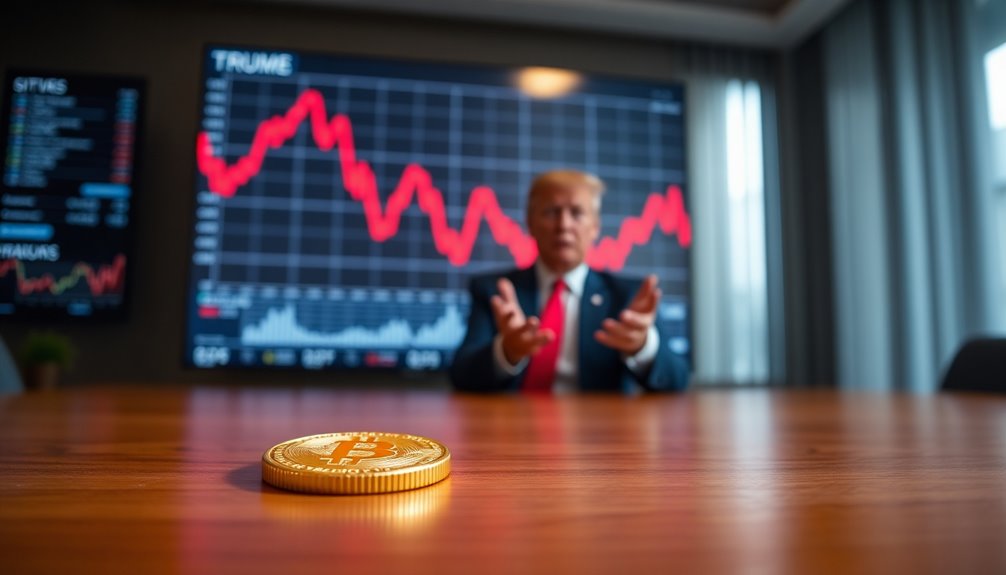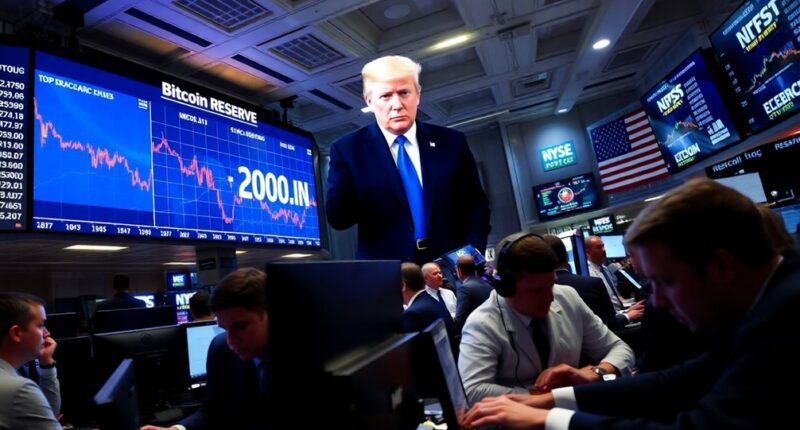You've likely noticed Bitcoin's sharp decline after Trump revealed his Strategic Bitcoin Reserve plan. It dropped from $90,251 to $85,091, causing many investors to shift from excitement to disappointment. The uncertainty around acquisition strategies and increased government involvement has raised concerns. How will this impact the future of cryptocurrencies? The broader market's response suggests that investors are questioning the overall effectiveness of such a reserve plan. What does this mean for cryptocurrency regulation moving forward?

As Trump unveils his Strategic Bitcoin Reserve plan, Bitcoin's price plummeted by about 6%, dropping from approximately $90,251 to $85,091. You might be wondering how a government initiative could trigger such a sharp decline in one of the most volatile assets. The announcement that the U.S. government would establish a reserve using seized Bitcoin from criminal activities shocked many investors. Instead of a wave of excitement, market sentiment quickly shifted to disappointment.
The Strategic Bitcoin Reserve will include Bitcoin already held by the government, and crucially, it won't involve using taxpayer funds to buy more. This lack of a clear acquisition plan led to confusion among investors who'd hoped for supportive government purchases to bolster Bitcoin's price. Instead, the market reacted negatively, reflecting unmet expectations. In fact, shortly after this announcement, the price dipped further before partially recovering to around $87,202, but the initial shockwave had already rippled through the market.
You might also notice that other cryptocurrencies like Ether, XRP, Solana, and Cardano experienced similar price drops, illustrating a broader market reaction to the news. The formation of a digital asset stockpile, separate from Bitcoin, for other forfeited digital assets further complicated the narrative. It almost felt like a missed opportunity for the government to demonstrate confidence in Bitcoin's future by actively participating in its growth. The reserve is intended to serve as a digital assets store of value, akin to a Fort Knox for Bitcoin.
The federal government's decision to capitalize the reserve with forfeited assets instead of purchasing new Bitcoin raises economic concerns. Some economists question whether this move aligns with the dollar's stability and whether crypto can truly be seen as a reliable store of value amidst geopolitical turmoil. The irony here is palpable; the government, known for its regulatory stance, is now stepping into a space typically defined by decentralization.
As the dust settles, you can see the market eagerly awaiting further announcements, particularly those that might include favorable crypto tax policies. Investors are left wondering if this reserve will become a "digital Fort Knox" or simply a source of continued volatility.
The future holds many uncertainties, but one thing is clear: you need to stay vigilant and informed as the landscape shifts and evolves.









